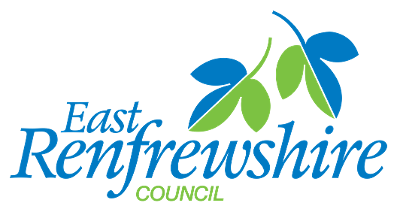Alcohol and Drug Recovery Services
Find out about the services available to support individuals and their families experiencing problems with alcohol and / or drug use, reduce the harm caused by alcohol and drugs and promote recovery and improved quality of life.
Information about Naloxone
Naloxone is a life-saving drug that can reverse the effects of an opiate overdose. Anyone can Request a Naloxone kit from Scottish Families Affected by Drugs, which will be posted out to them. Naloxone can also be accessed from local services by calling the East Renfrewshire Alcohol and Drug Recovery Service on 0141 577 4685 or emailing adrs.referrals@eastrenfrewshire.gov.uk
Emergency contact numbers
There is a range of help from various organisations if you need help urgently:
- Alcoholics Anonymous - 0800 9177 650
- Narcotics Anonymous - 0300 999 1212
- Cocaine Anonymous - (8am to 11pm) - 0141 959 6363
- South Area Crisis Team (9am to 8pm)- 0141 232 7060
- Mental Health Services (Out of hours 8pm to 9am) - 0845 650 1730
- NHS 24 Help Line - 111
- Glasgow Drug Crisis Centre - 0141 420 6969
- Social Work (Out of hours) - 0300 434 1505
- Breathing Space - 0800 83 85 87
(Monday to Thursday 6pm to 2am - Friday 6pm to Monday 6am - Samaritans (freecall) - 116 123
- Homelessness (Out of hours) - 0800 052 0180
- East Renfrewshire Women's Aid - 0141 404 0015
East Renfrewshire Alcohol and Drug Recovery Service
East Renfrewshire Alcohol and Drug Recovery Service (ADRS) is part of East Renfrewshire Health and Social Care Partnership, and includes staff from social work and health. The service provides a wide range of alcohol and drug treatment and recovery help and support to adults aged 16 and over. The partnership is funded jointly by East Renfrewshire Council and NHS Greater Glasgow and Clyde health board.
We offer recovery-focused help and services if you have difficulties with alcohol and / or drugs and can provide you with the following:
- a named worker who will work with you throughout your contact with us
- an initial assessment, help develop your specific recovery care plan, counselling, and support with mental health and physical health issues linked to alcohol and/or drugs.
- medication assisted treatment if you are opiate dependent
- group based recovery supports such as mutual aid and relaxation
- support to family members (aged 16 and over) who are affected by a loved one's use of alcohol or drug use
Phone 0141 577 4685 for advice or to make a referral. Assessment appointments are offered at a number of locations.· You can also email adrs.referrals@eastrenfrewshire.gov.uk
Contact and referrals can also be made on your behalf by:
- someone else if they have your permission
- your doctor or other professionals/workers
A family member can contact us if they are affected by a loved one's alcohol and/or drug use.
We're open Monday to Thursday: 8.45am to 4.45pm and Friday: 8.45am to 3.55pm
Out-with these times, or in a non-emergency, please contact NHS 24 on 111. If you have a life-threatening emergency, then call 999.
Medication Assisted Treatment (or MAT) is the use of medication such as opioids (buprenorphine, including long acting, or methadone) in the treatment and care of people who experience problems with their opiate use. You'll be supported to make an informed choice on what medication is best for you.
- psychological evidence based interventions and social supports are offered as part of a mutually agreed recovery plan.
- in line with the Medication Assisted Treatment Standards for Scotland, all people seeking support with their drug use have the option to rapidly start treatment, ideally on the same day, after they present to the service.
Adults 16 and over can access support for the harmful use of alcohol or any drug, including:
- an appointment to talk to us in confidence about the problems you are experiencing
- a full assessment of your needs with a recovery plan for your care and treatment with regular reviews
- a range of 'talking therapies' and medical treatment to assist your recovery journey with a range of goals including becoming alcohol and drug free, controlled use and harm reduction
- assessment for alcohol detox
- protective medications for alcohol use
- mental health and physical health assessment for alcohol and drug use cases
- potential for access to residential rehabilitation through an established service user pathway, following a care plan review by the worker and service user
You can read our MAT Standards Implementation Plan (PDF, 207 KB) to find out more about how we are delivering Medication Assisted Treatment.
You can discuss the option of accessing a residential rehabilitation service with your allocated worker. Your worker will assist you in looking at the range of rehabilitation services and their different approaches to alcohol and drug use to help you choose the best place to meet your needs.
You can then be referred to the rehab for an assessment and consideration of a date for admission - sometimes there can be a waiting list for a place to be available. You can also be considered for detoxification, either prior to going into the rehabilitation centre or within the centre depending on the services they provide.
If alcohol detoxification is required then this would take place either within the community or with a planned hospital admission to a specialist unit. If drug detoxification is required then this may take place within a specialist hospital unit and then transfer for continuation of detoxification within the residential rehabilitation service. There may be times that drug stabilisation is required and this can be discussed and planned with your allocated worker, however, it may be something that residential rehabilitation services are unable to provide.
Read the Residential Rehabilitation Pathway report (PDF, 901 KB) Please note: This document may not be fully accessible to all. If you require a printed version please contact the Alcohol and Drug Recovery Service.
You'll have a named ADRS worker who will work with you throughout your care and where needed, you'll have access to a range of professionals including psychology, psychiatry and occupational therapy.
Occupational therapy can offer a range of focused and meaningful supports at any point in a person's substance use journey to maximise independent living and facilitate successful community living. Identifying individual strengths and motivation is a key part of identifying and achieving focused occupational goals.
Occupational Therapy can:-
- Support people to explore roles, habits, routines, self-care, productivity, socialisation, leisure and vocational opportunities, such as training, education, peer support, supported employment, voluntary or paid employment.
- Assist with establishing positive networks and relationships, promoting community integration, access to community resources and support the development of a recovery focused community.
- Support with life skills development such as, anxiety management, overcome cravings, emotional regulation, relapse prevention, confidence building, effective communication, mindfulness, resilience building and promote positive and healthy behaviours.
- Support with independent living skills such as personal care, meal preparation, domestic chores, shopping, and gardening, access to leisure, hobbies and socialisation.
- Help people function in all of their environments (e.g., home, work, school, community).
- Work collaboratively with people in a manner that helps to foster hope, motivation, empowerment, as well as promoting change.
Working in partnership
Partner agencies also provide a range of services to reduce alcohol and drug related harm and support recovery in our communities.
Turning Point Scotland's Mobile Harm Reduction Service supports people who are using drugs by delivering WAND - Wound care, Assessment of injecting risk, Naloxone and Dry blood spot testing. They can also provide advice on harmful alcohol use and sexual health.
A harm reduction van, staffed by harm reduction practitioners, will be in the area every fortnight on a Thursday. You can call 07729 045 643 / 07729 045 183 for dates and an exact location. This is a drop-in service.
In addition, if you know anyone who would benefit from this service you can contact Turning Point directly to request a WAND, you can call the office on 0141 280 3834 to arrange a suitable day and time.

